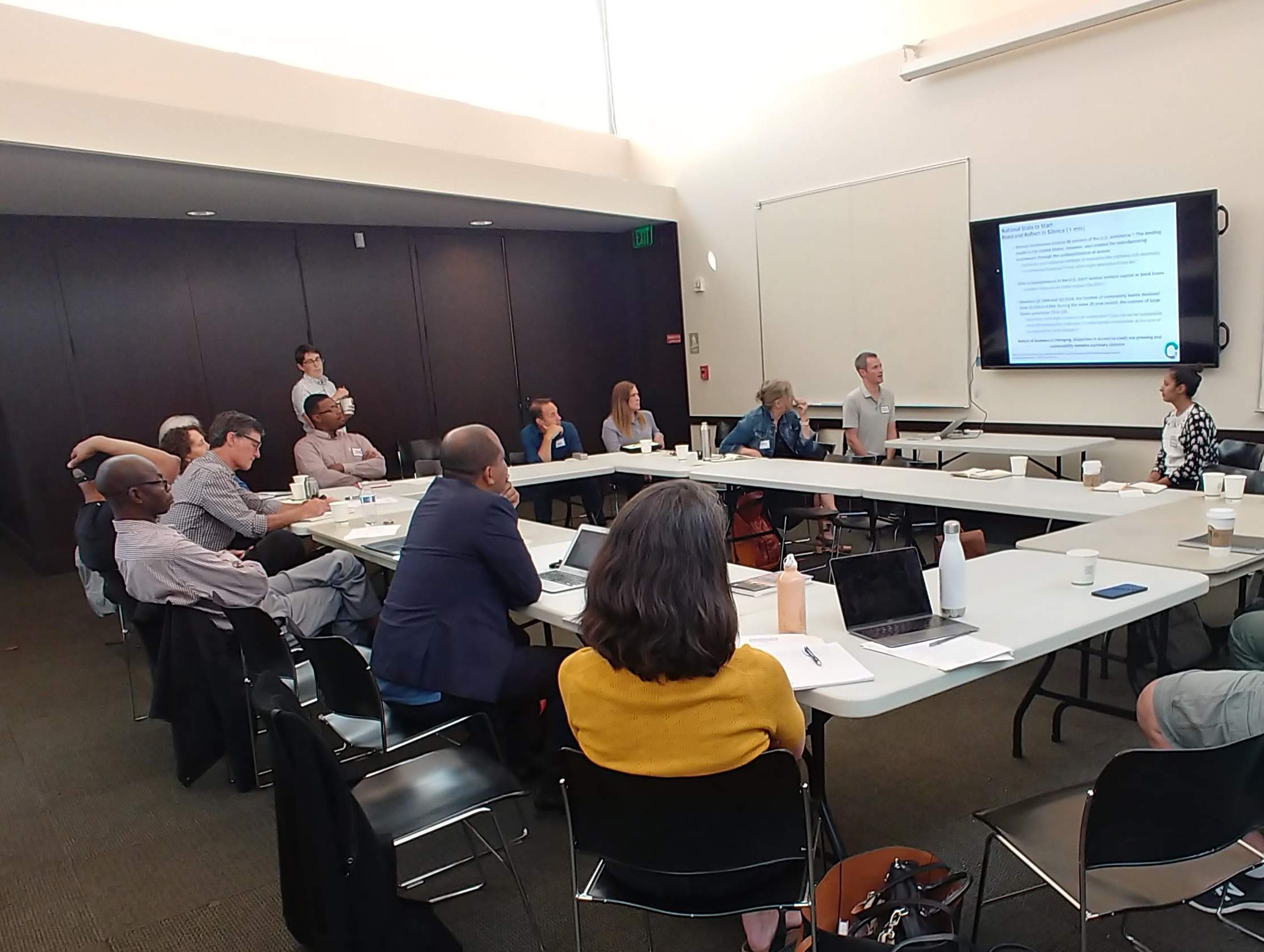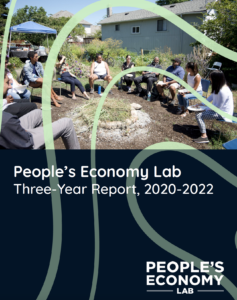In pursuit of an economy that puts people and places first and the need to give communities more control over capital, People’s Economy Lab convened 21 local leaders to workshop the issue of affordable and accessible capital. The group that came together shared vision of increased local investment in entrepreneurs and workers from communities that face greater barriers, including communities of color, immigrants and refugees, and women, and new strategies for a vibrant community economy that closes the racial wealth gap.
The group had representation from community development financial institutions, credit unions, ethnic chambers of commerce and business support organizations, academia, individual investors, grassroots capital pilot projects, and others. A new organization, Community Credit Lab, shared data from their research of more than 100 local leaders on barriers to capital and the persistent national racial disparities which also show up in King County. Their data resonated with experienced service providers who identified key barriers like:
- Traditional risk assessments that discount certain communities
- Lack of capacity for culturally relevant technical assistance and the need for education
- The importance of public support and how policy affect outcomes
- Policy and technical barriers that prevent people from investing in their own communities.
- The need for more data
The group found value in the opportunity to convene, as there is not a regular platform for this conversation. They identified a need for acting on multiple fronts to change outcomes, including:
- Address the multiple financial costs that prevent entrepreneurship
- Build out space to track data and develop programmatic and policy solutions
- Experiment more to arrive at a new model for community-based economic models
- Decentralize investment opportunities into community banks and credit unions
- Expand the definition of risk beyond financial risk to the investor, and into the risks our communities face if inequities and extraction persist
- Bring more people – including diverse business owners – into the conversation directly
- Provide stable, culturally relevant technical assistance to various efforts
- Identify and value relationship in lending alongside financial return
- Make financial literacy and business literacy training consistently available
- Support the long-term success of local businesses, and their growth
We’re continuing the conversation and welcome inquiries and offers to help on the road to changing the way capital works in our communities toward community benefit. That may include future conversations, information gathering and analysis, and pilot projects. Please contact us if you want to learn more and be involved.


